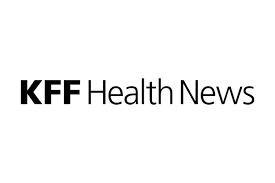
Editor's Note A Republican-led House subcommittee investigating the COVID-19 pandemic released a 520-page final report summarizing its two-year inquiry, outlining recommendations for future pandemic preparedness and critiquing both US and global responses to the crisis. CNN reported the news December 2. The report concludes that COVID-19 most likely emerged from…

Editor's Note The World Health Organization (WHO) has declared the ongoing mpox outbreak in Africa a global health emergency, according to a CNN article published a day after the Centers for Disease Control and Prevention (CDC) warned about increasing activity for seasonal respiratory virus parvovirus B19. WHO issued the emergency…

Editor's Note A study published August 6 in the journal Surgery highlights the impact of structured debriefing tools on improving communication and patient safety in the OR during the COVID-19 pandemic. Conducted over three years, the study implemented a new electronic health record (EHR) module to document surgical debriefings and…

Complex problems do not always require complex solutions. Consider the surgical safety checklist. In 2020, more than a decade after the World Health Organization (WHO) started advocating that every hospital use the checklist, research from PSNET found that more than 90% of ORs in countries with a high human development…

Editor's Note A nearly 2-year drop in global life expectancy from 2019 to 2021 indicates that the COVID-19 pandemic effectively erased decade of progress, according to The World Health Organization’s 2024 World Health Statistics report. According to May 24 Healio report on WHO’s findings, global life expectancy dropped by 1.8…

Ambulatory surgery centers (ASCs) play an increasingly crucial role in delivering outpatient surgical care that is efficient, effective, and—most importantly—safe. As the ASC sector continues to grow and evolve, maintaining best practices in hand hygiene and environmental cleaning and disinfection is imperative to protect patients from infections. ASCs also should…

Editor's Note New World Health Organization (WHO) guidance aims to prevent the occurrence of bloodstream and other infections caused by improper use of catheters during medical procedures. Released May 9, the global guidelines focus on insertion, maintenance, and removal of catheters during medical procedures, which can damage organs and cause…

Editor's Note In a move one expert calls “a complete U-turn,” the World Health Organization (WHO) has concluded that viruses transmit through primarily the air via inhalation of tiny suspended particles of saliva and mucus, KFF Health News reported on May 1. Until now, health authorities have relied on the…

Editor's Note The World Health Organization (WHO) is sounding the alarm about the rise of the bird flu virus—H5N1—and the threat it poses to humans, Medical Xpress reported on April 18. Experts are concerned because the bird flu has recently spread from wild birds and poultry to cows and goats…

Editor's Note A new blood test developed by researchers in Australia could help diagnose sepsis and septic shock in just one hour, compared to the current multi-day methods. The Journal of Proteome Research reported the findings on March 21. Researchers collected blood plasma samples from 152 ICU patients. They used…